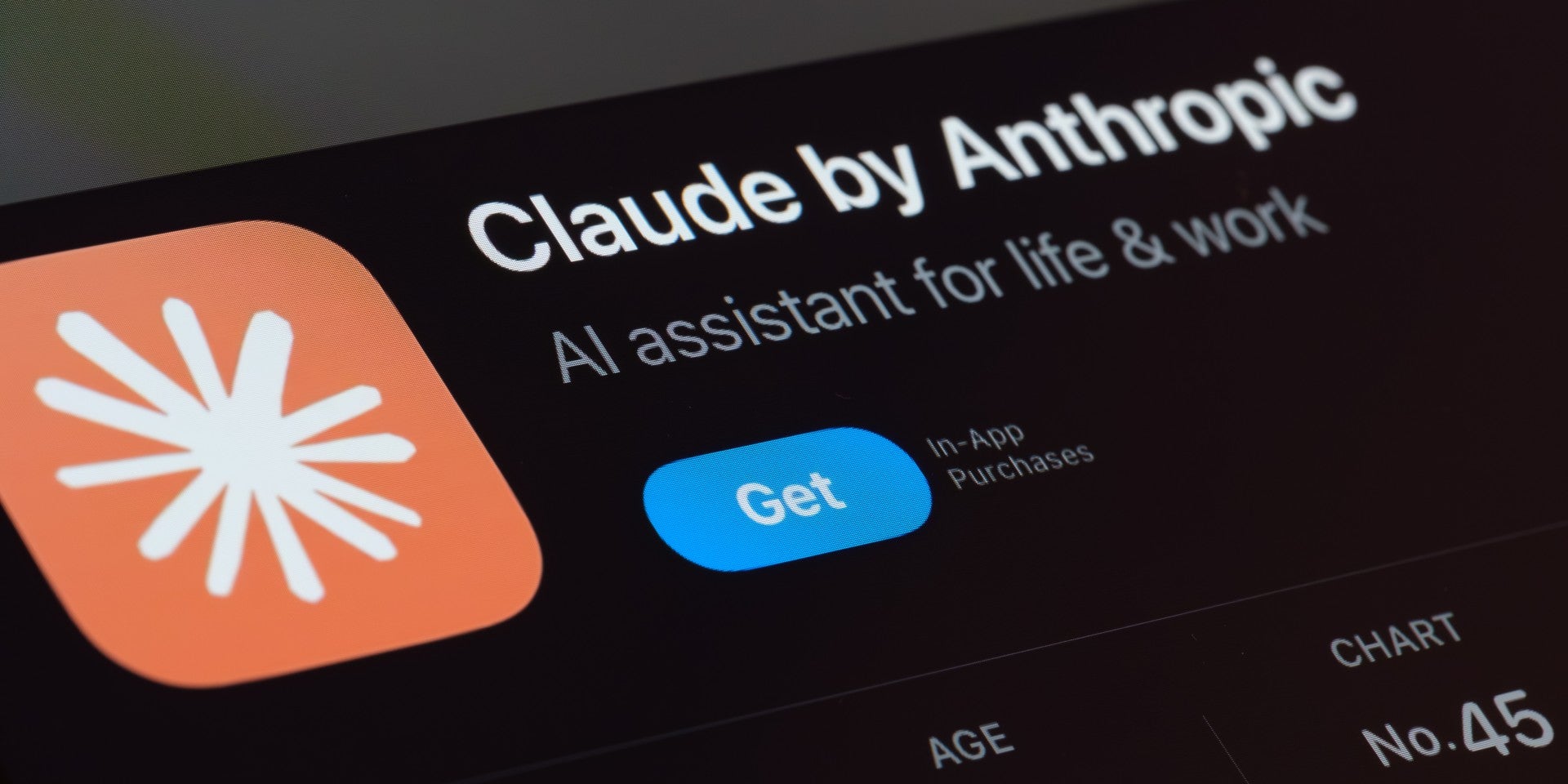Welcome to AI Decoded, Fast Company‘s weekly newsletter that breaks down the most important news in the world of AI. I’m Mark Sullivan, a senior writer at Fast Company, covering emerging tech, AI, and tech policy.
This week, I’m focusing on how generative AI and agents might radically change websites. I also look at the “circular” arrangements that are financing the AI boom, and at Blackrock’s big move into data centers.
Sign up to receive this newsletter every week via email hereAnd if you have comments on this issue and/or ideas for future ones, drop me a line at [email protected], and follow me on @thesullivan,
How AI and agents could completely change websites
At OpenAI’s developer event this week, the company had a lot to say about autonomous agents, the AI-powered helpers that can understand what a user needs (sometimes proactively) and then do the work of getting it. The common narrative this week based on OpenAI’s announcements is that the company is building a “platform” around ChatGPT and people will use the chatbot as a gateway to all sorts of web content. Freestanding websites (like Fast Company) will likely still exist, but they might look and work very differently when powered by large language models and agents.
How might they change?
A new UX. Right now, we use a mouse or a touchscreen to peruse menus, tap buttons, and scroll. We do all this either to see what the publisher has on offer, or to find the specific content we want within the virtual layers of information on the website. The only intelligence guiding that process is the descriptive language in the menus and buttons. AI models could inject much more intelligence into the experience. Users might be able to just talk to the interface and let the website gather the most relevant information in real time—similar to the way AI search engines like Perplexity form a custom package of multimedia information. after a user enters a query. And all that information might change in front of the user’s eyes as they give the AI more instructions. In other words, websites may no longer have a standard structure dictating how and where content is displayed. It may depend entirely on what the user is looking for and how they describe their need.
Agent, my agent. At OpenAI’s developer event on Monday, Christina Huang, one of the company’s execs, used the platform’s new Agent Builder tool to create an agent (live, onstage, in under eight minutes) that would act as a sort of concierge to help users at a standard web page the company built about the event. It showed developers the agent builder was the main point, but it also gave a glimpse of how OpenAI is thinking about the future of websites. Website visitors could tell the agent what they hoped to learn at the conference, and the agent would assemble a schedule full of the best panels and work groups to suit that end. The agent also had its own personality and visual style. The user interacted with it by typing, but it could easily have been a voice interaction between user and agent, which would have added a new dimension to the agent’s vibe.
An intelligent UX and agents might play key roles in the websites of the future, or at least in the first phase of AI influencing how we access information online. From there, it could evolve to types of interactions that are hard to imagine right now. We should also remember that it may not be all about us (humans). Researchers are already trying to understand how websites might be coded differently for when most of the site’s visitors are AI agents.
AI’s incestuous funding circle
A growing number of people are voicing concern that just a few well-monied individuals and companies will control the AI that powers much of business and personal life, along with unprecedented amounts of personal information willingly fed into it by consumers. But the risks of AI’s small circle of big players may run deeper than that. AI’s biggest players are investing in each otherwhich some fear could be artificially inflating the stock prices and valuations of the whole group, as Bloomberg‘s Emily Forgash and Agnee Ghosh point out.
For example, Nvidia announced a $100-billion investment in OpenAI, which will buy about 2% equity in the company. Notably, the Nvidia investment will time the release of the funds according to the pace at which OpenAI buys the chips: Nvidia gets guaranteed chip sales and a 2% share of OpenAI. “(T)hese investments might be circular and raise related party concerns, as Nvidia may own shares in a customer that will likely use such funds to buy more Nvidia gear,” writes Morningstar equity. analyst Brian Colello in a research brief. OpenAI struck a similar agreement with Microsoft when it took a $10-billion investment from the software giant, then used the money to buy its Azure cloud computing services.
After facing criticism for the circular nature of the Nvidia deal, OpenAI doubled down and struck a similar deal with AMD, a rival AI chipmaker. OpenAI will buy large quantities of AMD’s Instinct AI chips on a set schedule over the next decade. If it keeps to the schedule, it’ll get the option of taking a 10% stake in AMD. The deal gives OpenAI a solid second source for AI chips, and could give AMD the stamp of approval it needs to become a legit challenger to Nvidia. AMD CEO Lisa Su called the arrangement a “virtuous, positive cycle.” OpenAI’s Sam Altman said during a meeting with reporters this week that the industry is still experimenting with the right financial models to pay for AI’s immense development and hosting costs.
On Tuesday, reports said Nvidia will buy a stake of up to $2 billion in Elon Musk’s xAI, which is now raising a $20 billion round. The financing includes equity and debt and is tied to the purchase of Nvidia GPUs for xAI’s Colossus 2 data center in Memphis.
The return on these big bets depends on how quickly AI can bring broad new efficiencies to big business, and, perhaps, find new ways to pry more dollars from consumers. There just isn’t much real evidence that these things are about to happen—not yet. As Bloomberg puts it, AI remains an “untested” technology in business. So all the funding and equity and chip contracts flying back and forth between these companies are, in a sense, just promises among a relatively small group of people that AI indeed will pass the tests that lay forward. That’s why the word “bubble” is on everybody’s lips.
Blackrock is moving hard on data centers and energy
The big money is moving into AI data centers. Blackrock, the world’s largest asset manager, is reportedly in advanced talks to spend almost $40 billion to buy Aligned Data Centers, which owns 78 data centers across the US, Canada, and South America. That news came two days after reports that Blackrock is also in advanced talks to buy the utility company AES in a deal said to be worth $38 billion.
Massive amounts of investment are pouring into the data center space, fueled by a belief that AI models will soon power many business and personal computing functions. Among the biggest barriers to such a transformation is a demise of both AI computing power and the electricity needed to power it. M&A in both the data center and energy spaces has surged.
Blackrock is doing the deals through its Global Infrastructure Partners (GIP) subsidiary. The Aligned Data Center deal, which was reported Friday by Financial Times and confirmed by others, could close any day now. MGX, an Abu-Dhabi AI investment firm backed by Mubadala/G42, may also participate independently in the deal, the reports say. The deal would be one of the biggest acquisitions of the year.
Earlier this year, Aligned raised $5 billion in equity and more than $7 billion in debt financing to expand its global footprint. GIP, which Blackrock bought in early 2024, already co-owns another data center group called CyrusOne, which it bought for $15 billion in 2021.
Tech companies and data center developers will likely break ground or advance several hundred new data center projects by the end of 2025. A ConstructConnect report found that data center construction “Starts” reached $12.9 billion by the end of June (with $2.4 billion in June alone), a 48% increase from the prior year. OpenAI’s “Stargate” project alone will build massive data centers on five new sites. The big money behind that project comes from Oracle, Softbank, OpenAI, MGX, and Nvidia.
Blackrock, with more than $10 trillion under management is often called a “shadow bank” because it manages funds for governments, pension funds, endowments, insurance companies, and corporations, as as well as for individual investors.
More AI coverage from Fast Company:
Want exclusive reporting and trend analysis on technology, business innovation, future of work, and design? Sign up for Fast Company Premium.
The extended deadline for Fast Company’s Most Innovative Companies Awards is this Friday, October 10, at 11:59 pm PT. Apply today.










